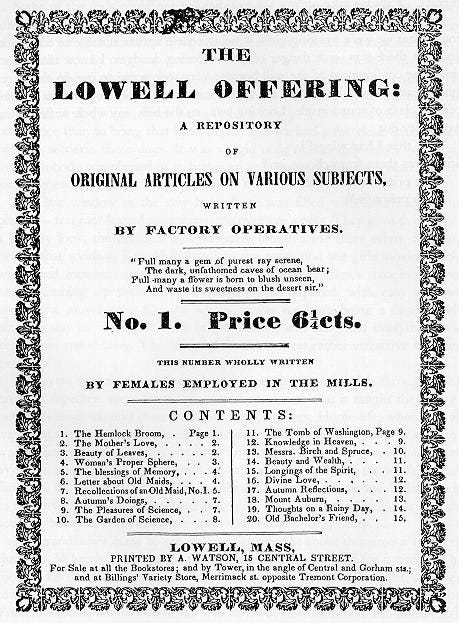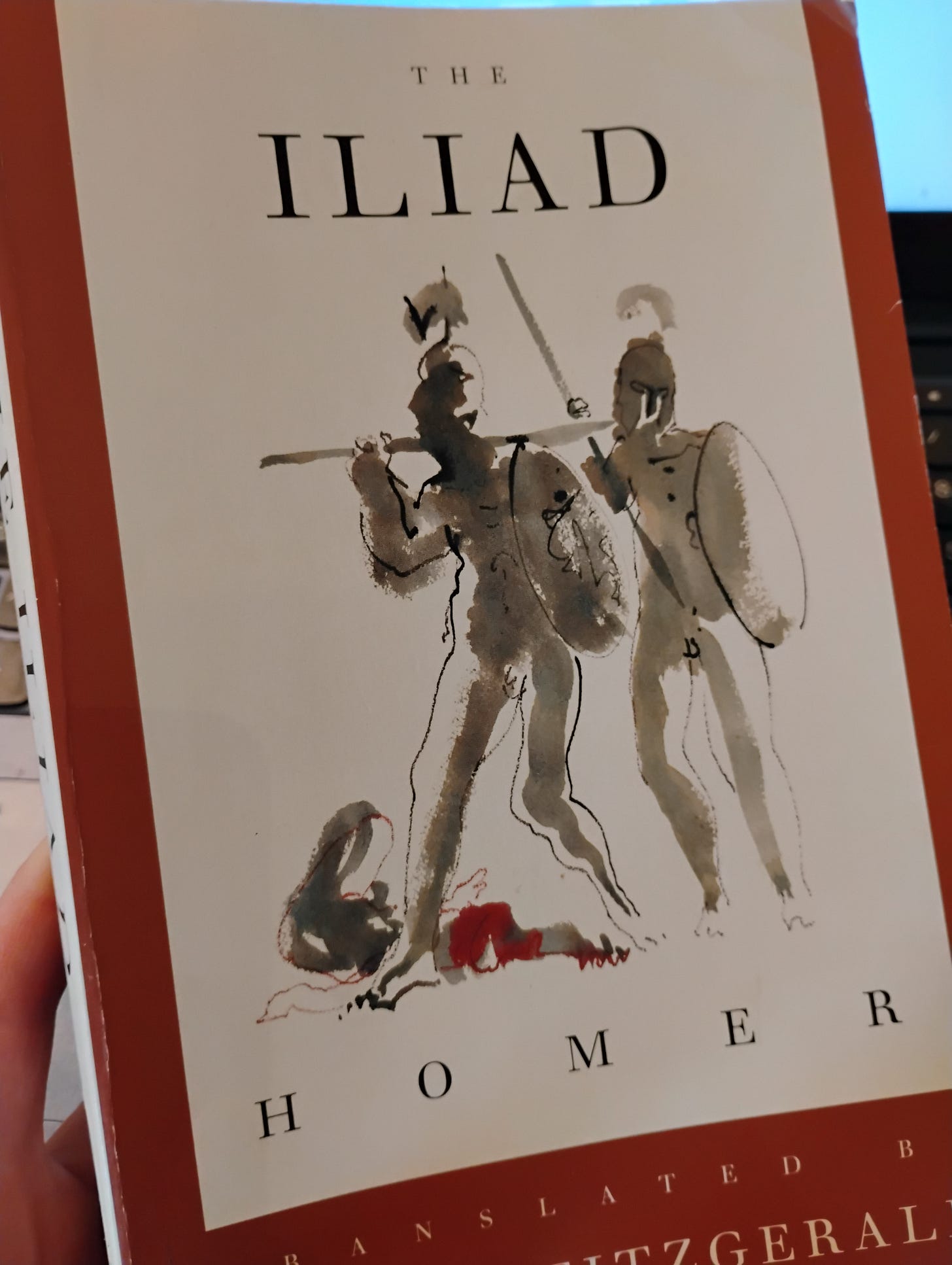Having a Go at the St. John's College "Great Books" Curriculum...
...because everyone can be "library-educated"
Post 1 of series, Library-Educated: St. John’s College Great Books Challenge
Ray Bradbury said that libraries are the center of our lives. “I am completely library-educated,” he wrote. “I’ve never been to college. I went down to the library when I was in grade school in Waukegan, and in high school in Los Angeles, and spent long days every summer in the library.”
So many of us have been impacted by the devastating weight of student loans—as a nation, we’re 1.773 trillion dollars in student loan debt—or have had our education curtailed for one reason or another: family needs, poverty, lack of support whether in information or finances, medical issues...to name a few. Some influencers suggest that students are overcharged and underserved by universities: colleges are growing their administration rather than their teaching staff, prioritizing the “selling” of their wares, while tenure-track positions are harder and harder to come by; such universities rely more and more on overworked and underpaid adjunct professors. Ultimately, the student loses out, including on any dreams they might have for solid post-graduate teaching positions, particularly in the humanities.
Too, whether we’re in school or not, we’re living in a world where AI is becoming ubiquitous. Students are reading summaries and excerpts rather than the great works themselves; they’re taught by reading snippets of great works out of context, rather than as a whole; they’re having AI write their papers for them. We’re losing our ability to read, to have an attention span beyond the length of a tweet or a 30-second video, to write coherently, or to think critically.
More and more, Bradbury’s own personal path sounds appealing.
Today, when more information is available at our fingertips than ever before, can we make this happen in the midst of tech distractions and overwork? But then again, what happened to the days when Welsh coal miners got through their long and dangerous work by reciting Shakespeare, creating their own libraries to use in their too-rare down time? Where are the millworkers—e.g. the “Lowell mill girls”—working twelve- to fourteen-hour days, who still managed to attend recitals and lectures after hours and contributed to their own newspaper? (If you’re interested, Boze and I have been devouring Jonathan Rose’s The Intellectual Life of the British Working Classes—we’re entranced.)

I’ve been something of an autodidact ever since about the age of fifteen when I quit public school in order to discover poetry, Shakespeare, Homer, John Henry Newman, Dickens, Austen, and many others. I was dreadfully shy, and perhaps a move from Wisconsin to Oregon right in the middle of ninth grade didn’t help matters. But as one who had just started discovering the glories of Shakespeare and some of the language’s greatest authors, I was angered when my new English teacher replaced the reading of Great Expectations with a forgettable angsty novel, and then skimmed over Romeo and Juliet, assuring us that he’d give us “a Cliffs’ Notes version of it so that you’ll never have to worry about Shakespeare again.”
I didn’t return to high school after that year.
Instead, I took a year of self-directed homeschooling—a year which, I would argue, really helped to solidify my newly-discovered passion for literature—passed the GED when I turned sixteen and started community college the following autumn.
But even with a passion for learning, life circumstances (family needs, work)—along with an idealistic temperament that inclined me towards discerning cloistered religious life for eight years—curtailed my college education. I ended up doing full-time seamstress work making Irish Dance dresses for performance and competition (bonus: you can listen to audiobooks while doing much of the work!), and eventually took on caregiving work to supplement the sewing when the recession hit in 2008. I didn’t go back to finish my associate’s degree until I was in my 30s. I continue to do support work for those with disabilities, alongside part-time sewing.
Did I miss out by not finishing a BA and beyond? I’ve always wondered whether I should have returned, or whether I should consider it still—it’s never too late, after all. I suppose anyone in a similar situation must grapple with the question for themselves, depending on their own life circumstances and career goals. Still, I want to learn and be curious for the rest of my life, whether or not I have a piece of paper to show my accomplishments in some “official” way. I’m not suggesting that anyone take the same path, or that mine was a particularly good idea. I only want to suggest that the “great books” are for everyone ; that autodidactism is something to celebrate, no matter what one’s education level or status; to suggest that it would help heal our world if we made an effort to foster a generation of “Library Kids” and “Library Adults.”
Still, and always, I voraciously read. I listen to audiobooks. I wrote a novel, my “love letter to Dickens.” I occasionally write reviews for the Dickens Fellowship. I hosted a nearly-three-year Dickens Chronological Reading Club with my Dickensian soulmate, the man who became my husband towards the conclusion of the club, and with whom I connected because of Dickens. I’ve always believed that Dickens is a way of life.
So, perhaps the more pertinent question here, especially if one is an autodidact and an advocate for lifelong learning and curiosity is: Can I do it myself, and continue my “library education” in the humanities, with some of the greatest minds in history?
There are as many different self-study paths as there are individuals, and my tendency is generally to fall down the rabbit hole with a niche subject, or several. I can’t give up my Dickens- and Hugo-mania. I don’t intend to cease my obsessive reading of Edwardian theatre or the French Revolution. But for a broader curriculum in addition to the niche passions, it occurs to me that one possible method is to follow a course of self-studying the Great Books Reading Curriculum of St. John’s College. After all, why not?
Take a look at this list:
What might this kind of challenge look like, on a practical level? At the very least, reading the books in the order they’re presented, with weekly or bimonthly posts reflecting on what I’ve been reading. (Some of these works I’ve read already; for those works, I’ll just have to decide on each work individually as to whether or not to reread them at this time or just write a few impressions of my recollections of my earlier reading experience.) Unlike with the Dickens Club, I’m not venturing into this with anything like set timetables for a group readalong, and I can’t take a pause from daily life to have a special sabbatical for it. Such is life as a blue-collar worker with the heart of an academic.
I’ve thought about this now for some time, and would like to give it a try. And I’d love to have you join me, even just to follow along with my reflections. If nothing else, I hope that the thoughts I share here might, in some humble little way, inspire and enrich your own reading and learning journey.
I would love to hear about your own reading and autodidact journey in the comments below! And if you’re interested in following along with this blogging journey—or even with the readings, in addition!—I will be posting on Sundays. Please tune in next week for Books 1-6 of The Iliad! I had read both The Iliad and The Odyssey in the old Britannica Great Books series as a teenager, but I know it is time to revisit them. For this go-round I chose the Robert Fitzgerald translation, largely for its poetic beauty—but also because this version is done full justice by Dan Stevens’s reading of it on audio! So I will be both listening and following along with the text.
Friends, whatever you’re reading and creating, let’s always read, always study, always write and think critically; always be curious—whether we work in academia or in a factory, whether we’re fresh out of high school or in our nineties, rich or poor. Beauty, knowledge and wisdom are our common inheritance, and we’re so blessed to have them all as close to us as our local library, or in the pages of our favorite book.






I will be right there with you on Homer's wine-dark sea, following the adventures of swift-footed Achilles and gray-eyed Athena!
And speaking further epithetically, this is my third go-round with Dan Stevens' silver-tongued narration of Fitzgerald's (sun-bright? great-hearted?) translation, and all I can say is, I'm very much looking forward to my afternoon Walkies in such audibly gorgeous company!
P.S. There's also Alfred Molina's gripping narration of Stephen Mitchell's more modern and wonderfully robust translation. As I have the time, I hope to listen to both! (For a nice little comparison of the two translations, see https://www.iliadtranslations.com/compare/mitchell-vs-fitzgerald
WOW that is marvelous...I feel like we'd have been friends in that school, reading Chuzzlewit away from the crowd! Thanks so much for sharing this, Marissa 💙 and I love it so much that you're now studying Greek & Latin!!! 🥹 how marvelous